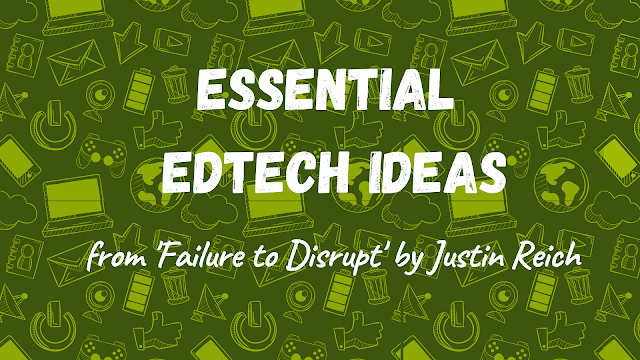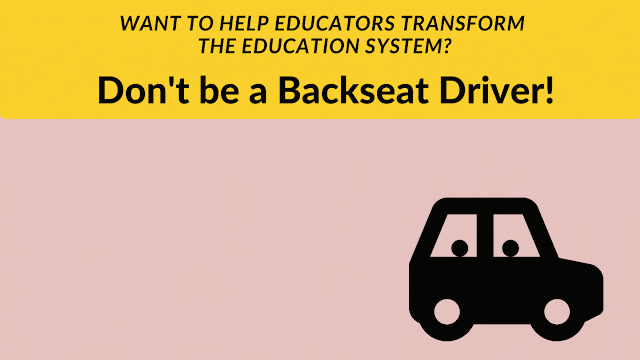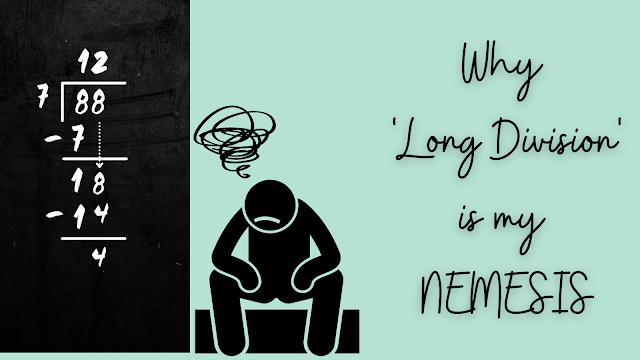Essential EdTech Ideas: from 'Failure to Disrupt' by Justin Reich
The Idea: Stay optimistic about Edtech but also think Long Term. Sustainable Change is most likely to be incremental, especially in complex educational systems. Edtech along with Learning Communities, has the best chance of bringing about positive sustainable change at scale, in education.
I just read ‘Failure to Disrupt’ by Justin Reich. It was a wonderful book that offers a wonderful big-picture perspective on Ed Tech. It summarises the history and evidence-base for different Ed Tech initiatives and also provides many helpful Ed Tech mental models.
Here are some of the most important pieces from my reading notes!
My Favourite Quotes:
“For those with access to online communities - now is the greatest time to be a learner”
“Trying to improve education with just technology is like putting rockets on butterfly wings”
“Education Technology is a good field for those who see themselves as patient optimists”
My Favourite Mental Model:
3 categories of EdTech for ‘Learning at Scale’
- Instructor-Guided
- Algorithm-Guided
- Peer Guided
- *special mention - Learning Games
I got a wonderful summary of the pros and cons of each type too in the book. See end of post for my summary of pros and cons.
My Favourite Big Ideas:
- The EdTech Matthew Effect is a thing.
- Educational systems are conservative and complex.
- Complex Communication (4C’s - Communication and Collaboration) and Unstructured Problem solving (4C’s - Critical thinking and Creativity) are two areas we will most likely outperform computers in the future. (Not a new idea but I liked the simple frame)
Big takeaways that I will apply immediately:
- Stay optimistic about Edtech but also think Long Term. Sustainable Change is most likely to be incremental, especially in complex educational systems.
- Edtech along with Learning Communities, has the best chance of bringing about positive sustainable change at scale, in education.
Extras: 3 categories of EdTech for ‘Learning at Scale’
Instructor-Guided: Like MOOCs on Coursera, Edx etc.
Pros:
- Access to expert instruction (from my experience, few people are able to garner student interest for a topic like an expert)
- Platforms like MOOCs etc allow for access at scale via the internet
Cons:
- Typically serve those that already have a reasonably good set of learning skills
- Single learning sequence for all learners
Algorithm-Guided: Computer Aided Instruction
Pros:
- Structured, programmable learning like ‘Foundational reading and math skills’ can be delivered in a self-paced manner
- Computer Aided Instruction (CAI) Allows for individualized learning pathways based on student level within the structured course content
Cons:
- Works for simple, structured instruction in which the sequence can be determined beforehand. Hard to address Complex learning
Peer Guided: Online learning communities on Youtube, Social Media Pages like Facebook, Instagram etc.
Pros:
- Interest-driven communities keeps motivation high
- Can serve people with niche interests
- Lack of formal structure allows multiple entry points with low barriers to entry
Cons:
- Outcomes, Quality of learning and learning pathways not clearly defined and therefore not easy to evaluate







Comments
Post a Comment